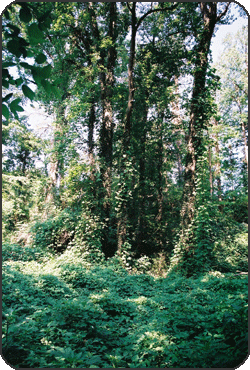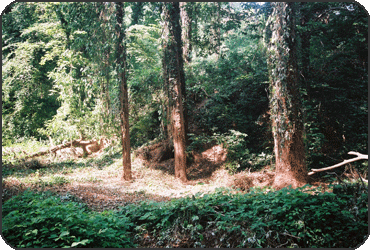To save all the trees of the forest of greater Atlanta from the degradative and destructive effects of invasive plant species is way beyond the efforts of one small business operation, especially if the effort is to be timely. This is important as many of the areas trees are being killed or severely damaged even as you read this. Moreover, private property owners can only be immediately responsible for the trees and woodlands on their own land. To save those parts of the forest on public lands, and on lands held by institutions with limited funding, the power of the people within the community can be tapped. This is the basic rationale for the Field School’s Community Projects [ !SEE THE VIDEO! ]
Neighborhood Associations, Schools, Local Businesses, Scout Troops! There is now a way for you to most effectively contribute to the well-being of your local forest, improve air quality, and provide an even more esthetically pleasing and restful recreational area for your community.
The idea here is that the Field School provides the organizational know-how and practical expertise to help focus the energies of local organizations to the task of controlling and eradicating invasive plant species from the neighborhoods trees and woodlands. The model for this is the way that the martial artists of the Sung Ming Shu dojo of North-East Atlanta have become engaged in the conservation of the Fernbank forest through a collaboration with the Fernbank Museum of Natural History. For a minimal cost to the Museum, hundreds of hours of Volunteer time have been spent cleaning trees of ivy, wisteria, and kudzu, and cutting down and pulling up Privet. In some areas of the Museum’s grounds this effort has enabled the re-planting of new herbs, shrubs, and tree seedlings and, hence, a jump-start to the secondary succession that had all been but shut down by the invasive vines and shrubs.


A copse of trees at the Fernbamk Museum of Natural History before a Community Project in June of 2008 (left), and immediately afterwards (right)
